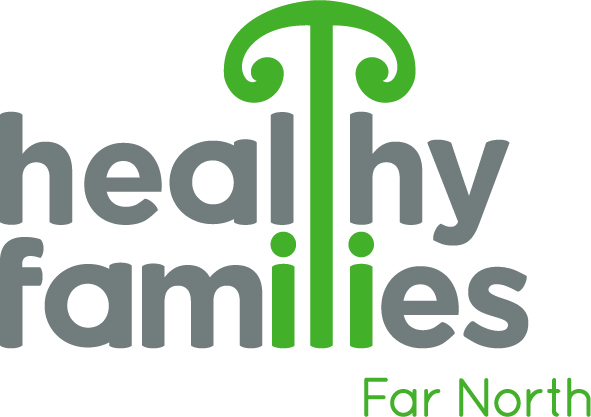Imagine tamariki going to kura and getting more than an education; a place where they could connect more with the whenua, recite whakapapa and learn Māori kupu – engaging with play areas that are unique and motivating to them when they’re outside the classroom.

Sport Northland’s Play on the Way was created as a way for schools to have a say in the spaces they play in, choosing stencils they wanted printed in and around their school that would encourage healthy active learning.
Healthy Families Far North have been working alongside Sport Northland to connect with rural kura in Te Tai Tokerau, to design and produce their own play courses, allowing tamariki to re-invent classic concrete games and creating play spaces that are important to them.
Junior schools from years 1-10 in mainstream and kura kaupapa Māori of Te Kura Taumata o Panguru took part in a chalk dump to explore their own autonomy, using their imagination and creativity to design different concepts, bringing them to life on the footpaths and buildings around them.
Kaiako of Te Kura Taumata o Panguru said tamariki were able to engage in a way that is more meaningful to them, by highlighting place names, kupu and significant rangatira to their rohe.

“It wasn’t on the wall or on the boards in a classroom, it was on Papa – it’s a different canvas and so we had some kids drawing up hopscotch, four square but instead using taniwha or Kupe as their king, Whina as their queen... and then we had some who were really into Te Whare Tapu o Ngāpuhi.”
“They let their imagination go. Some of us have never seen our kids outside playing concrete games before, not for a long time anyways, it’s usually just handball... but they were really getting into it and connecting more with the whenua using simple things like chalk. It was awesome!”
When young people have access to enriched and varied playful experiences within their local environments, they develop a range of skills that will help them throughout their life.
The Play on the Way chalk dump enabled a variety of play types as an individual and with others, encouraging connection with the whenua, physical movement, and the opportunity to experience risk and challenge with little adult input.
Healthy Active Learning Facilitator of Sport Northland, Tuparahuia Pita, said it was an authentic experience for everyone involved.

“One of the things I noticed was that they really wanted to take ownership of their whenua, there was a personal connection and they felt part of something. They had that attitude that ‘this is ours; these are our rules’ and you got a sense of why they did it this or that way.”
“There were so many different people from different groups there for play in a meaningful way, and you could tell that they appreciated that because we were all there for them.”
Individuals have their own level of motivation, confidence, physical competence, knowledge and understanding that affects how they value and choose to be physically active. A person’s physical literacy evolves throughout their life and for young people who are building and developing their physical literacy, quality play experiences that meet their holistic needs are vital, (Sport New Zealand, 2022).
Play Development Lead of Sport Northland, Natalie Wilcock, said connecting with Healthy Families Far North and rural schools has shifted the way the kaupapa has been implemented.

“Previously we’d look at what teachers would send through, we’d talk to kids while they play or work with small groups of students to see what kind of stencils and games they’d want to see at their schools,” she said.
“After working alongside Healthy Families Far North, visiting Te Kura Taumata o Panguru and seeing how they intuitively connect place to play, it’s added another layer of how we can support more meaningful play experiences for kura across Aotearoa and how they can have a more hands-on approach to designing their own stencils.”
Tamariki want to be part of the entire process, she added.
“We’re going back to previous schools now to see how we can embed local pūrākau and place based kōrero to the stencils we’ve already created and using the same process of working alongside them to identify those.”
“We’re hearing that these tamariki are asking when they can paint their designs permanently after the rain has washed them away… they want to be part of that process and that’s something we’re looking to add into the process now as well.”
Healthy Families Far North Systems Innovator, Rawinia Everitt, said the day was an example of what happens when we recognise and elevate the inherent rangatiratanga of tamariki – letting Māori be Māori.

“It was really special to connect Sport Northland with Te Kura Taumata o Panguru and to work collectively, to be able to adapt and bring in all these different skills we hold as a rōpū to ensure we’re uplifting the vision our tamariki have for themselves,” she said.
“We’re excited to further support Sport Northland with this kaupapa and to see more genuine play and movement provided in Te Tai Tokerau.”
Kōtahi te kōhao o te ngira e kuhuna ai te miro mā, te miro pango, te miro whero.
